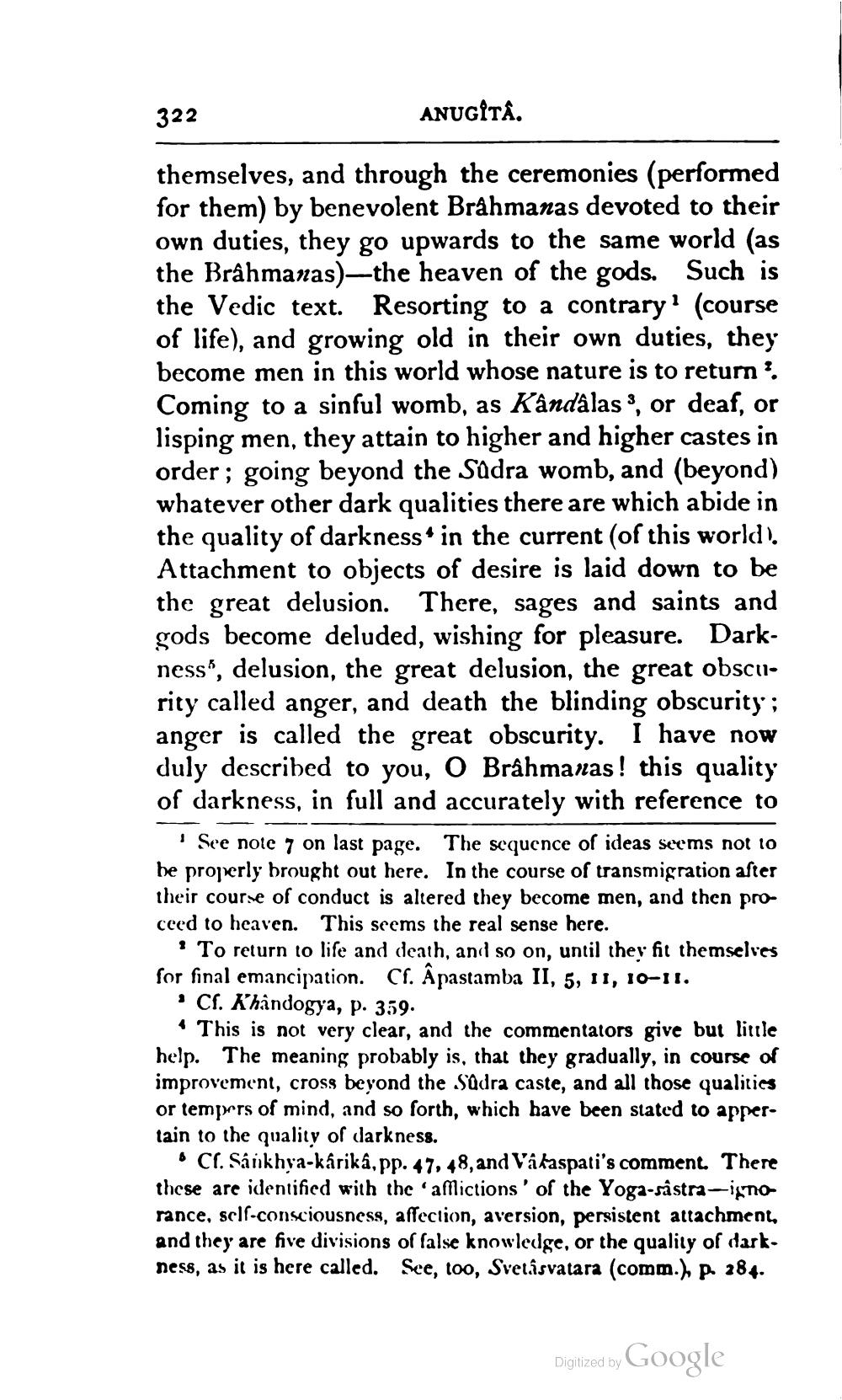________________
322
ANUGITÀ.
themselves, and through the ceremonies (performed for them) by benevolent Brâhmanas devoted to their own duties, they go upwards to the same world (as the Brâhmanas)—the heaven of the gods. Such is the Vedic text. Resorting to a contrary' (course of life), and growing old in their own duties, they become men in this world whose nature is to return? Coming to a sinful womb, as Kândâlass, or deaf, or lisping men, they attain to higher and higher castes in order; going beyond the Sadra womb, and (beyond) whatever other dark qualities there are which abide in the quality of darkness in the current (of this world. Attachment to objects of desire is laid down to be the great delusion. There, sages and saints and gods become deluded, wishing for pleasure. Darkness", delusion, the great delusion, the great obscuirity called anger, and death the blinding obscurity; anger is called the great obscurity. I have now duly described to you, O Brahmanas! this quality of darkness, in full and accurately with reference to
'See note 7 on last page. The sequence of ideas seems not to be properly brought out here. In the course of transmigration after their course of conduct is altered they become men, and then proceed to heaven. This seems the real sense here.
To return to life and death, and so on, until they fit themselves for final emancipation. Cf. Âpastamba II, 5, 11, 10-11.
· Cf. K’handogya, p. 359.
• This is not very clear, and the commentators give but little help. The meaning probably is, that they gradually, in course of improvement, cross beyond the SQdra caste, and all those qualities or tempors of mind, and so forth, which have been slated to apper. tain to the quality of darkness.
• Cl. Sankhya-kárika, pp. 47, 48, and Vakaspati's comment. There these are identified with the afflictions' of the Yoga-sastra-ijno rance, self-consciousness, affection, aversion, persistent attachment, and they are five divisions of false knowledge, or the quality of darkness, as it is here called. See, 100, Svetasvatara (comm.), p. 284.
Digitized by Google




